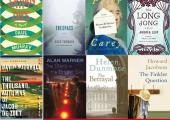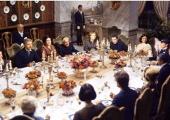On Adapting Birdsong for the Stage

Rachel Wagstaff explains how she took on Sebastian Faulks's much-loved bestseller
I remember walking into the Hawthorn Ridge cemetery, seeing a grave of a 20-year-old boy who died on 1 July, 1916, and knowing for the first time why Sebastian Faulks needed to write Birdsong, and why I desperately wanted it to live and breathe and be brought back to the public consciousness again.









